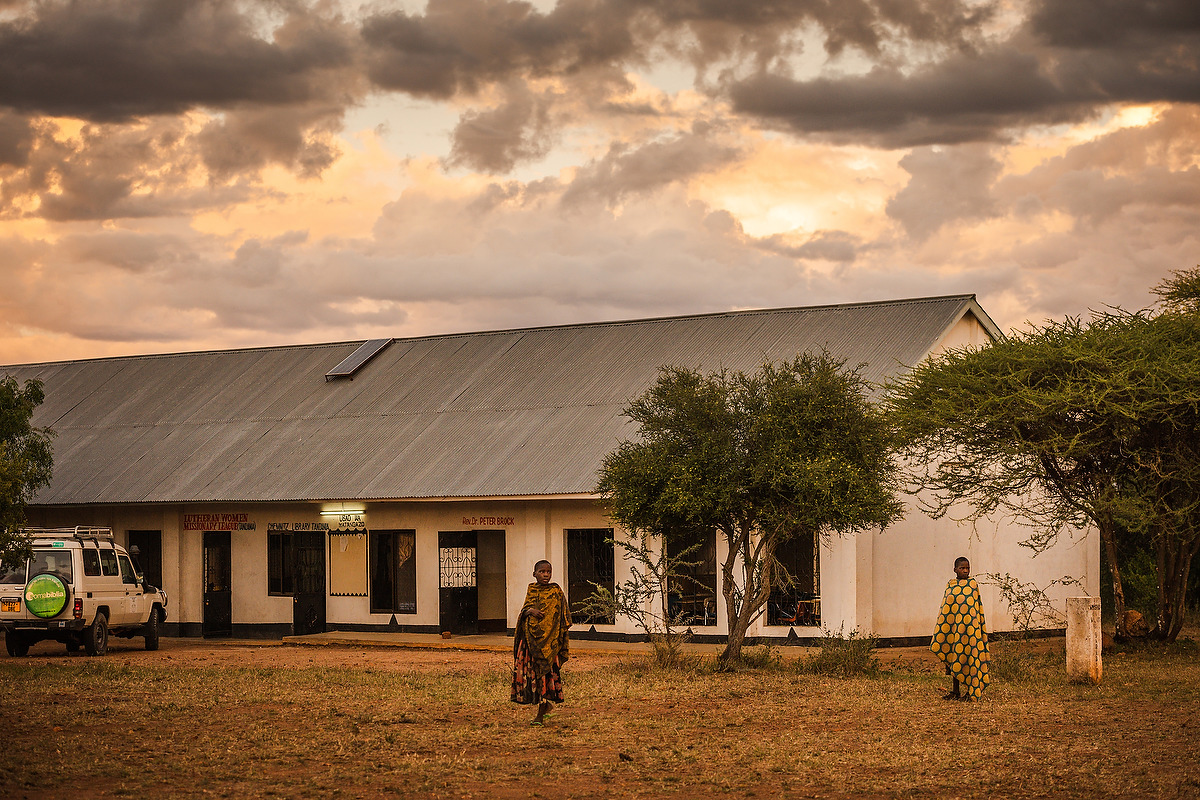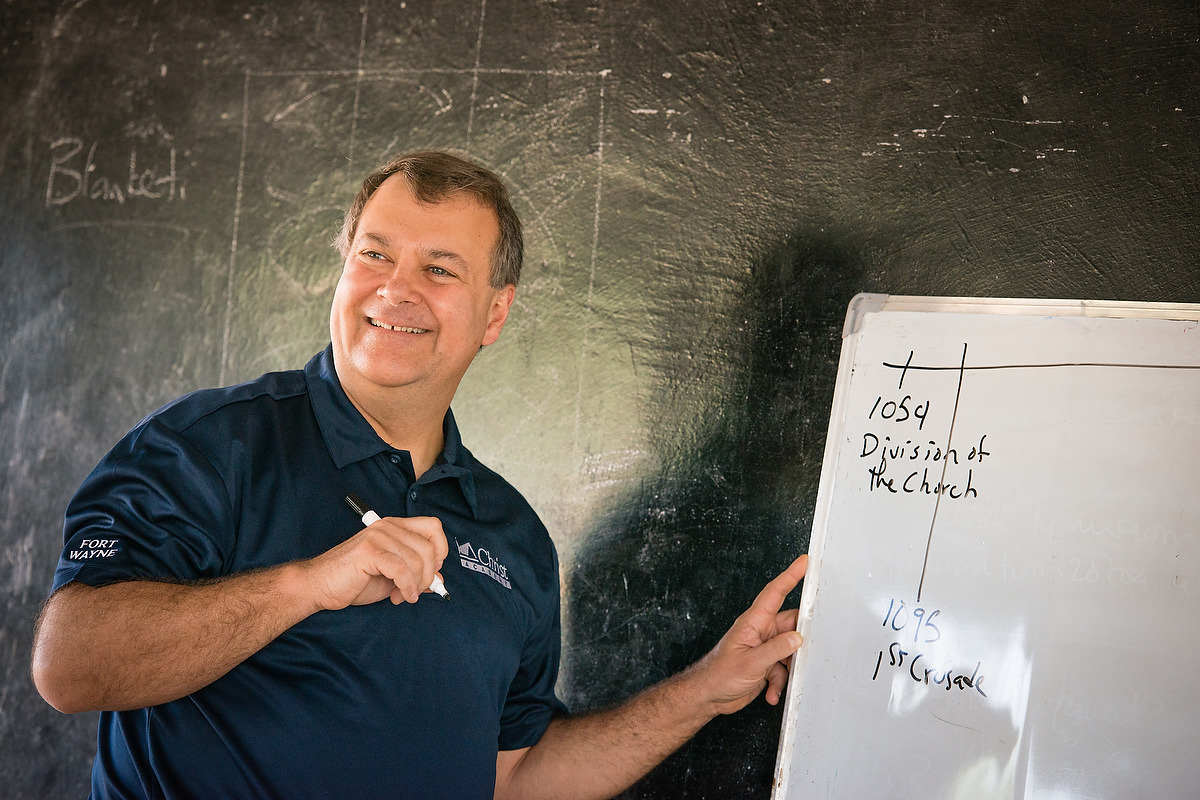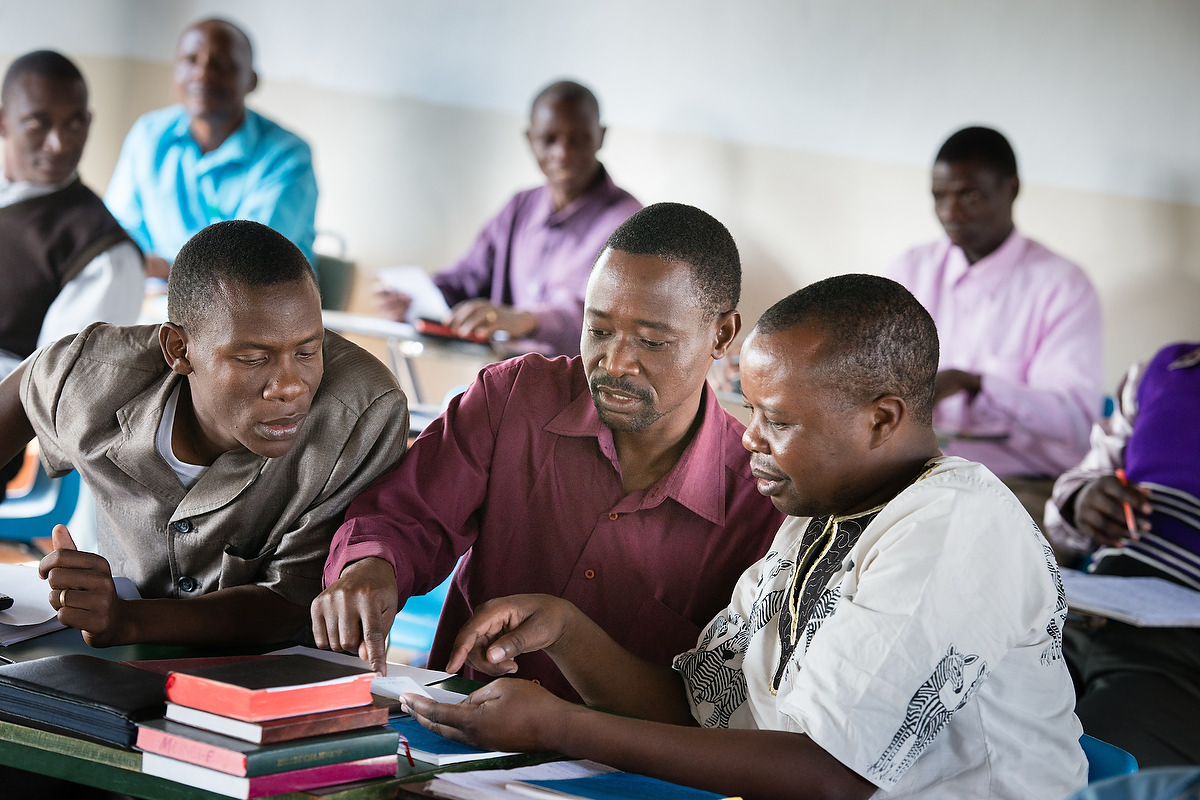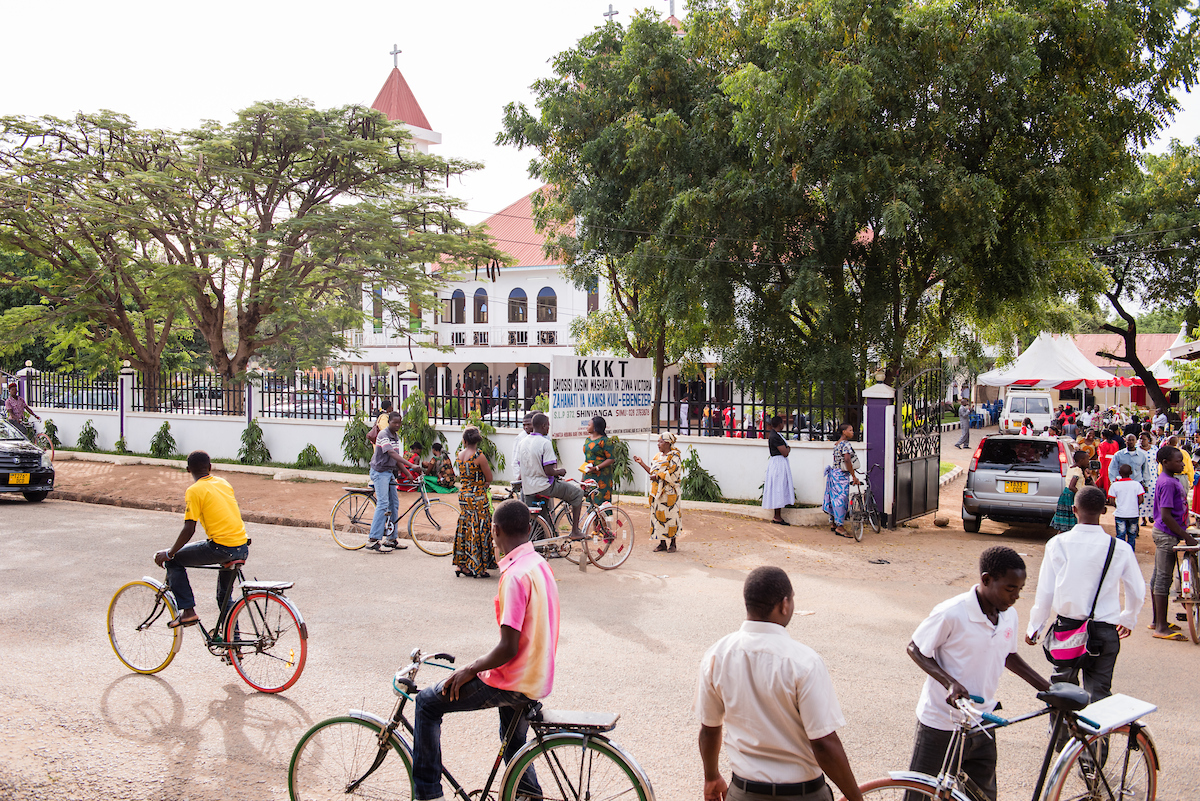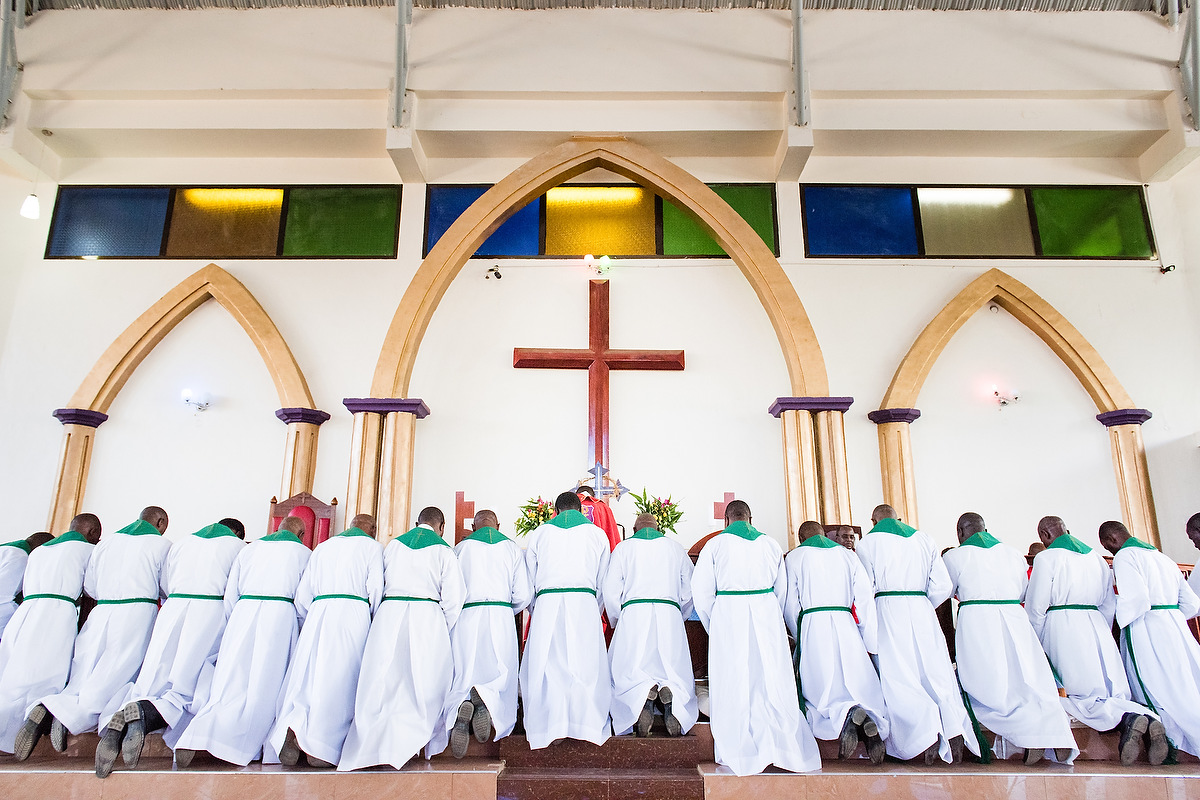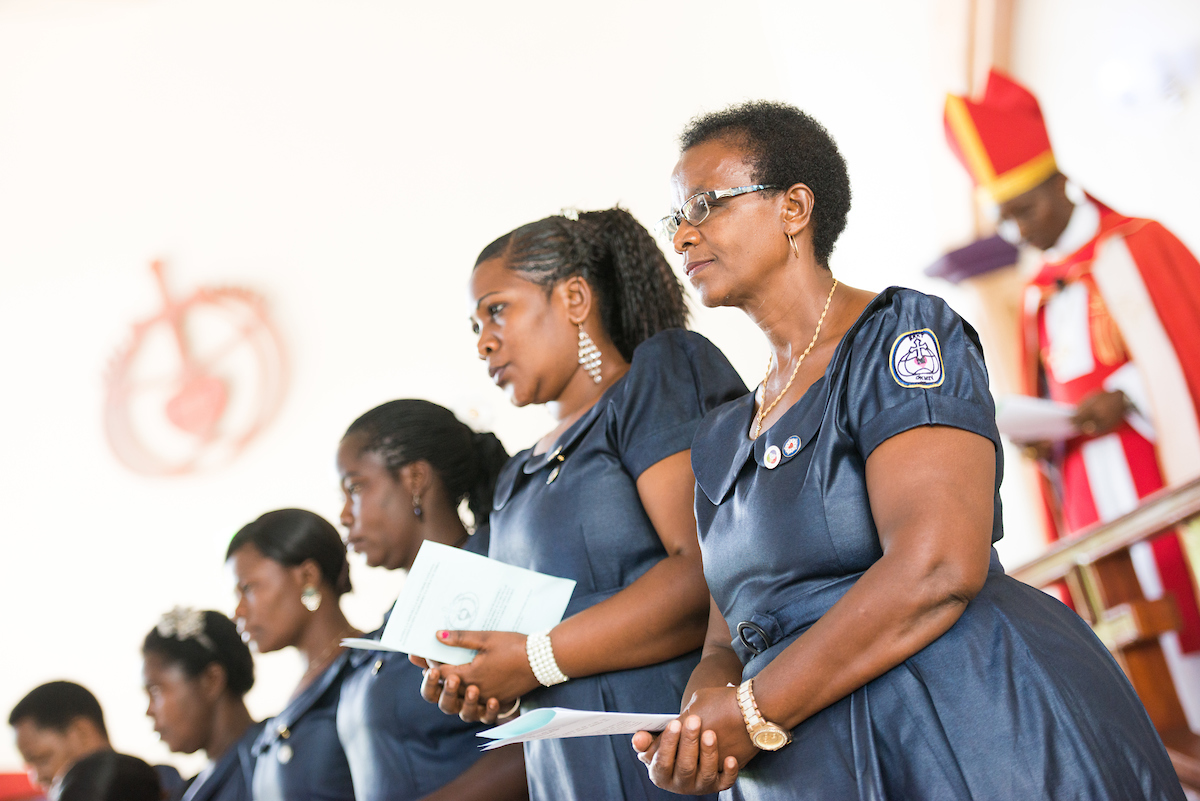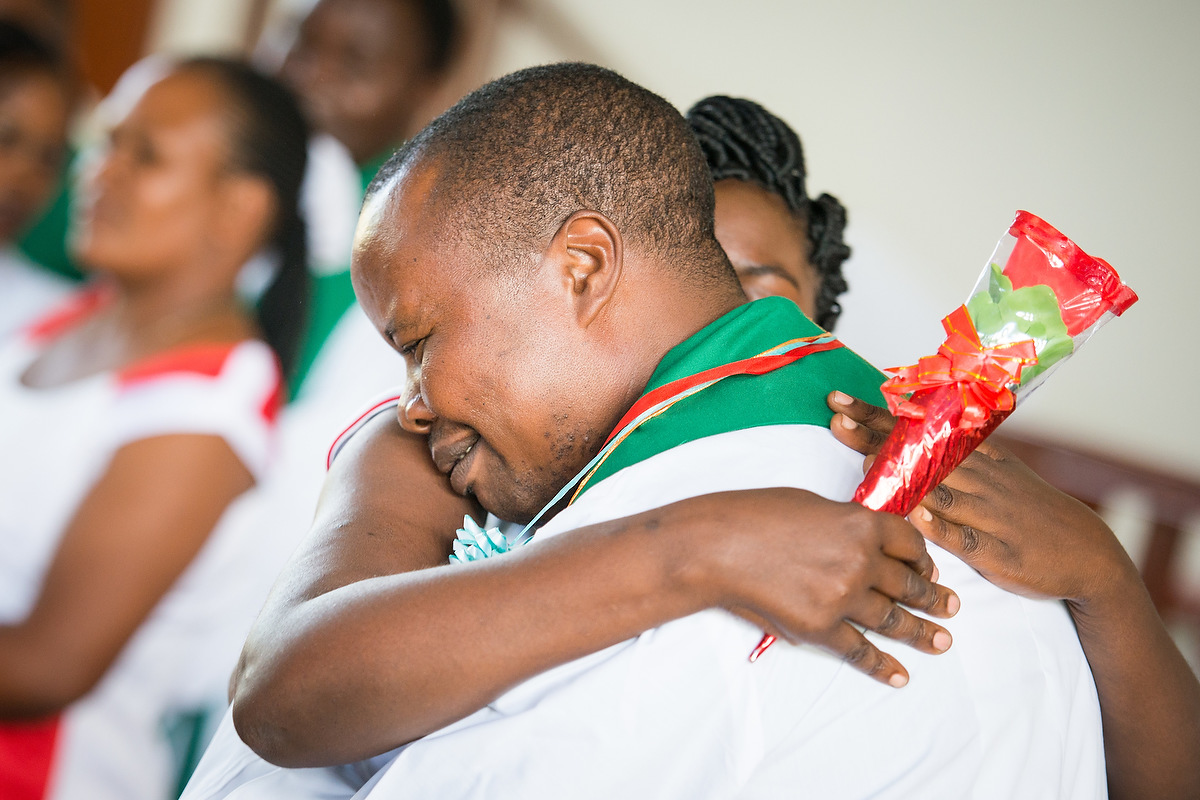International Mission
Leaving the Darkness, Proclaiming the Light
Many Lutherans in Tanzania seek to learn and teach the truth of the Scriptures as found in the Lutheran Confessions, and they are asking the LCMS to join them.
Sunflowers opened their petals to allow the light to give life, as the abundant African sun washed over the mud and dirt road in northern Tanzania. As representatives from The Lutheran Church—Missouri Synod (LCMS) traveled down the dusty road, the scenery almost looked like Kansas.
The LCMS is not in fellowship with any church body in Tanzania. Yet, plenty of work and many invitations to join together in the Word of God remain. And there are many opportunities to influence and encourage the Lutheran churches in Tanzania. As with many churches throughout the world, the Lutherans in Tanzania are facing challenges from within and without.
Tanzania is commonly known for two things: Mount Kilimanjaro and safaris in the Serengeti National Park. Yet, this nation in East Africa is also home to many Lutheran churches and cathedrals. Since Lutherans have been in Tanzania for generations, they make up one of the leading Protestant denominations in the country. But as happens in many cases, Lutheran church bodies in Tanzania have started to embrace components of Pentecostalism, adhere to a theology of glory and ordain women.
There are some Tanzanian bishops and pastors, however, who believe, teach and confess theology in concert with the Lutheran Confessions and the LCMS. These leaders within the Evangelical Lutheran Church in Tanzania and neighboring Lutheran church bodies are asking the LCMS for help in training their pastors, evangelists and deaconesses in the doctrine that the LCMS teaches. Many long for teachers and support, so that the truth might be shared and pastors might be instructed to better teach the people in their care.
Building a Confessional Church
“We are coming from the liberal Lutheran church, which has been in Tanzania for over 120 years,” explained the Rev. Jesse Angowi, archbishop of the Lutheran Church of East Africa (LCEA). “We want to have a confessional Lutheran church … and we have found that the teachings of the Missouri church [LCMS] is the true teaching of the Lutheran church.”
In order to facilitate instruction in the faith, the LCEA established St. Peter Lutheran Seminary in Himo (Moshi), Tanzania. “I want everyone to know the teaching of the Bible — the Word of God and the Sacrament,” said Angowi. “Not just knowing the Bible, but knowing the truth of the Bible through the teachings of the Lutheran church. … I want people to become strong Lutherans.”
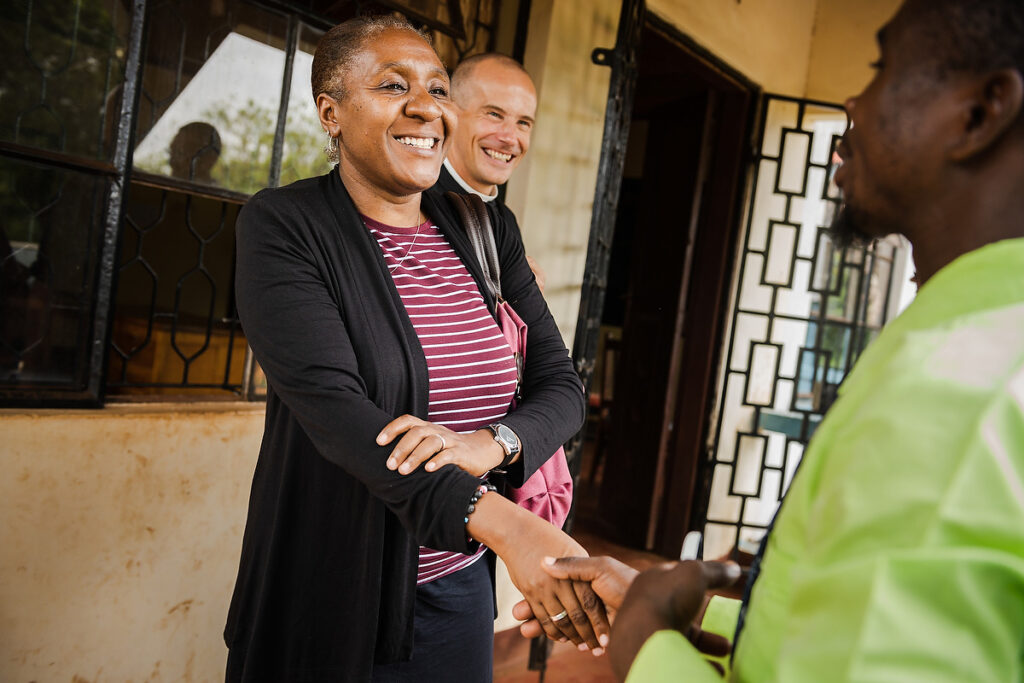
Shara Osiro and the Rev. Jonathan Clausing, LCMS missionaries, bid farewell to seminary students at St. Peter Lutheran Seminary in Himo. 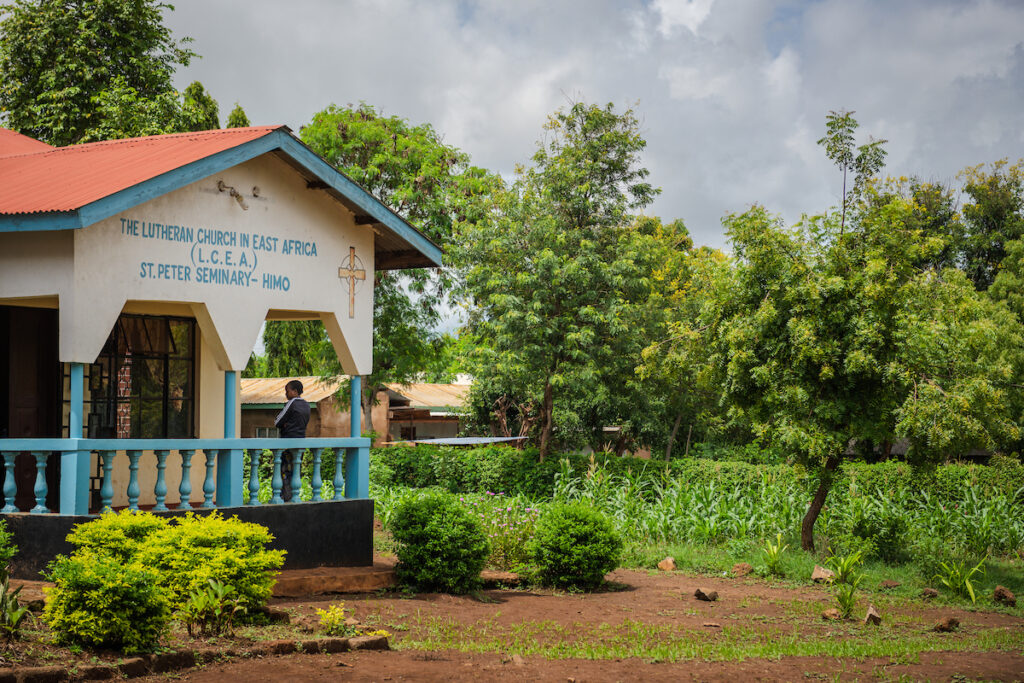
The exterior of St. Peter Lutheran Seminary. 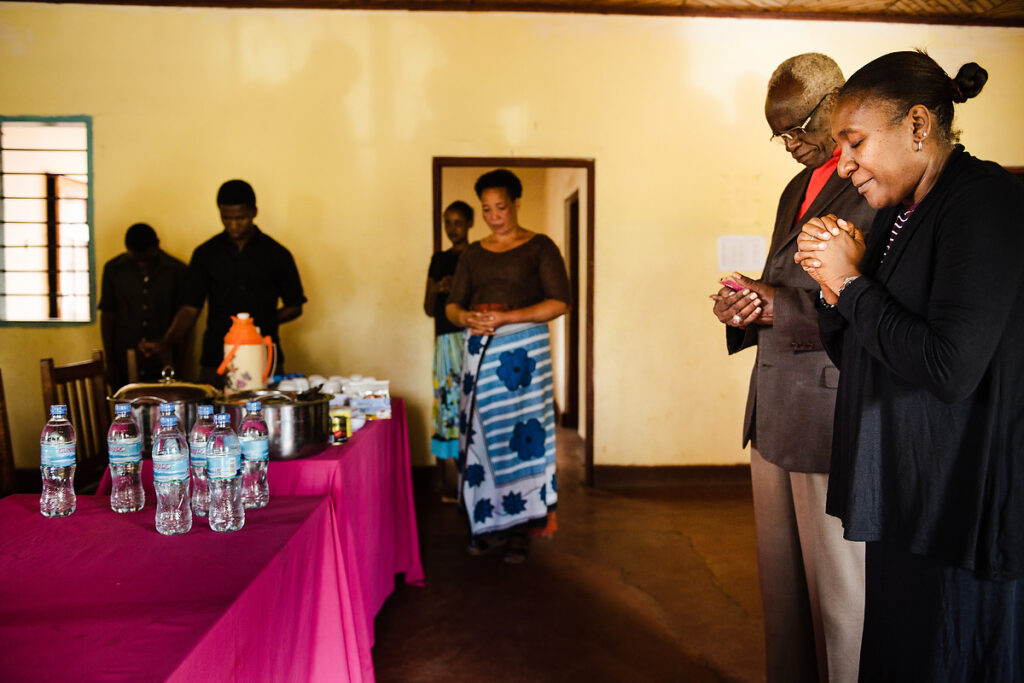
Osiro (far right) prays with the Rev. Jesse Angowi, bishop of the Lutheran Church of East Africa, at St. Peter Lutheran Seminary. 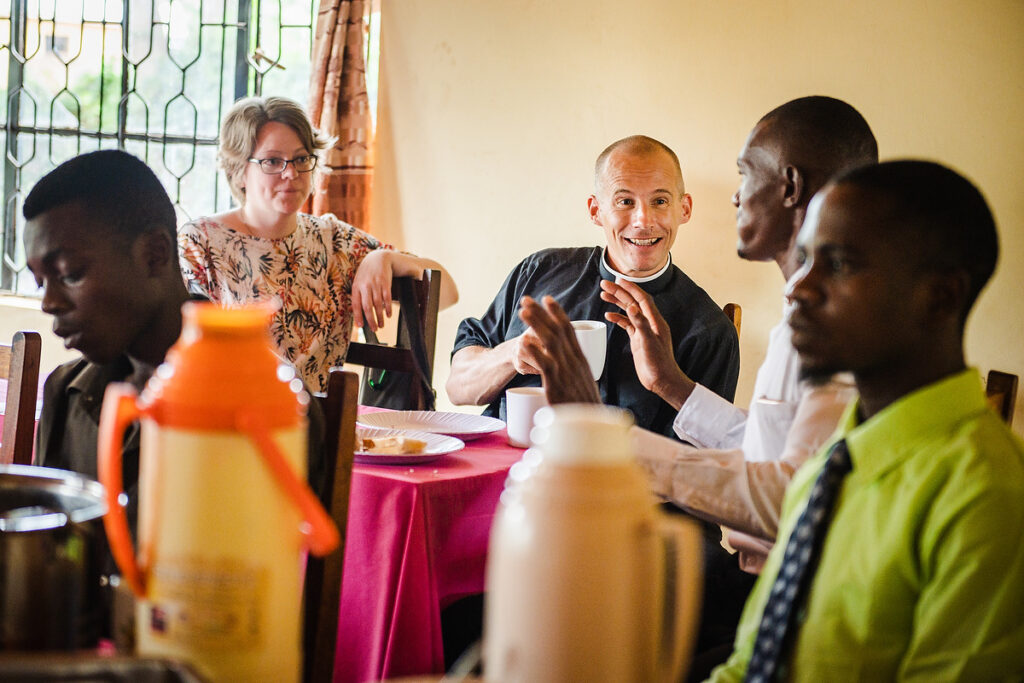
Clausing greets a pastor at St. Peter Lutheran Seminary in Himo. Sarah Kanoy, fellow LCMS missionary, joins the conversation.
To that end, LCMS missionaries serve the people of the LCEA and teach at St. Peter Lutheran Seminary. This semester, LCMS missionary Rev. Jonathan Clausing is teaching Greek, Hebrew, Introduction to the New Testament and Luther’s Small Catechism. The content of these classes closely mirrors what seminarians learn at both Concordia Theological Seminary, Fort Wayne (CTSFW), and Concordia Seminary, St. Louis (CSL).
“The church needs thoroughly prepared pastors,” said Clausing. “We want to give a very solid preparation and training for the pastors.”
Clausing learns from his students, even as he instructs. The men who come to learn from him bring with them experiences foreign to American understandings and circumstances. Even though the doctrine is common to the whole church, application requires mutual conversation and understanding.
Providing Education and Care
Located just outside of Moshi, Kahe Lutheran Church’s building preserves the past and points toward a hopeful future. The Rev. Godson Justine Mlay serves as pastor for the congregation, which currently meets in a small structure prone to flooding. New but incomplete brick walls surround the current structure. This new building will provide a better space for a congregation begun under a tree a generation ago.
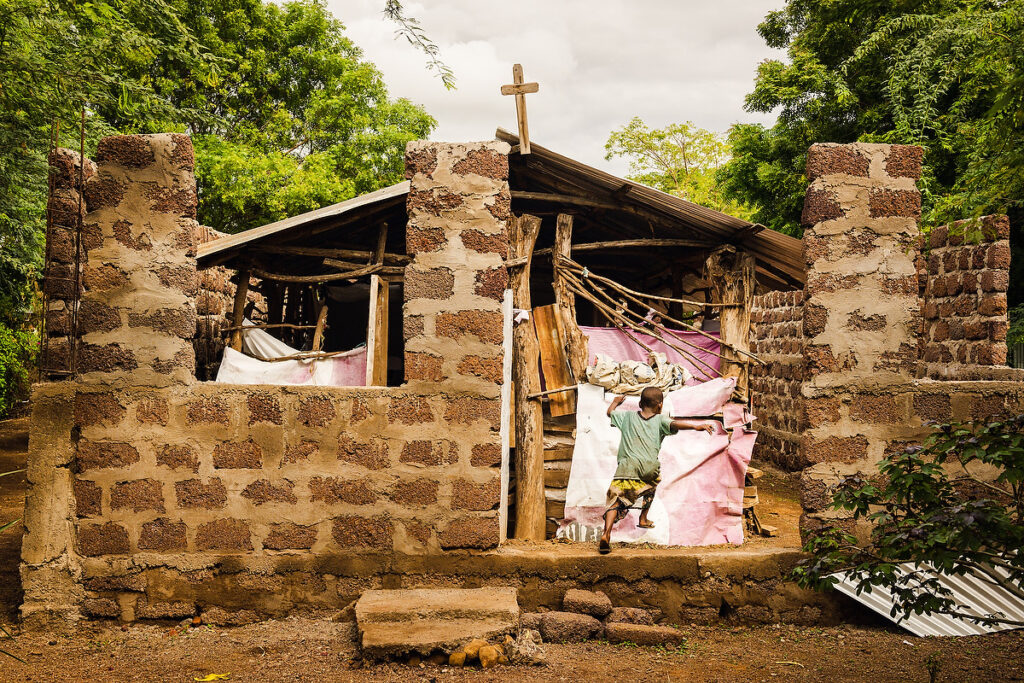
A boy jumps through the entrance of Kahe Lutheran Church outside of Moshi, Tanzania. The congregation first met under a tree, before building a simple structure. Now a new building is being constructed around it. 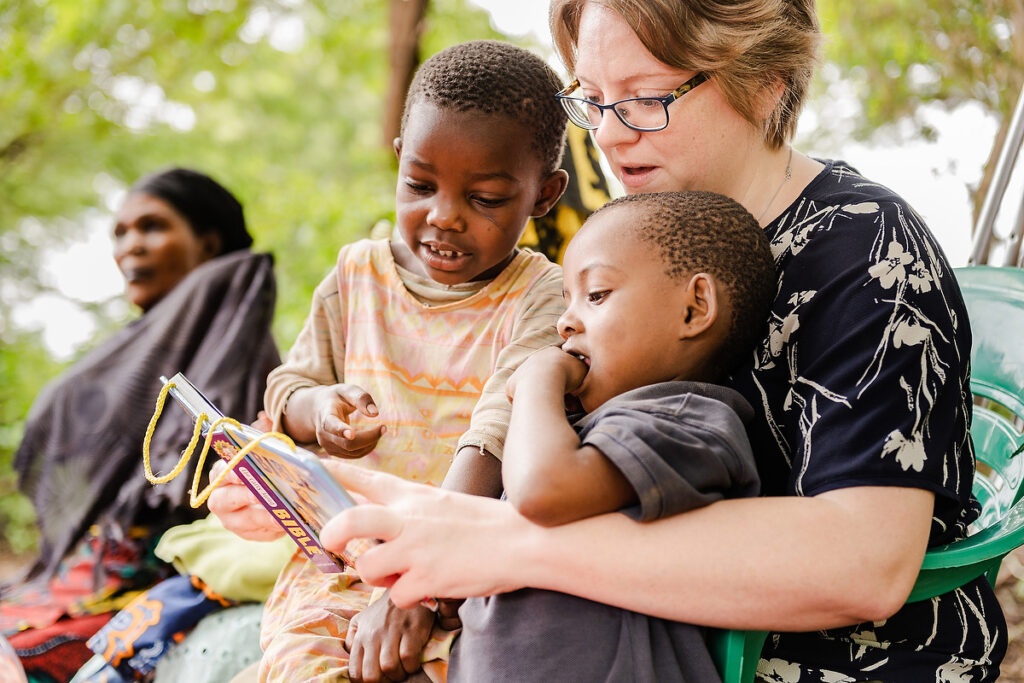
Kanoy teaches a Bible story to two young boys at Kahe Lutheran Church. 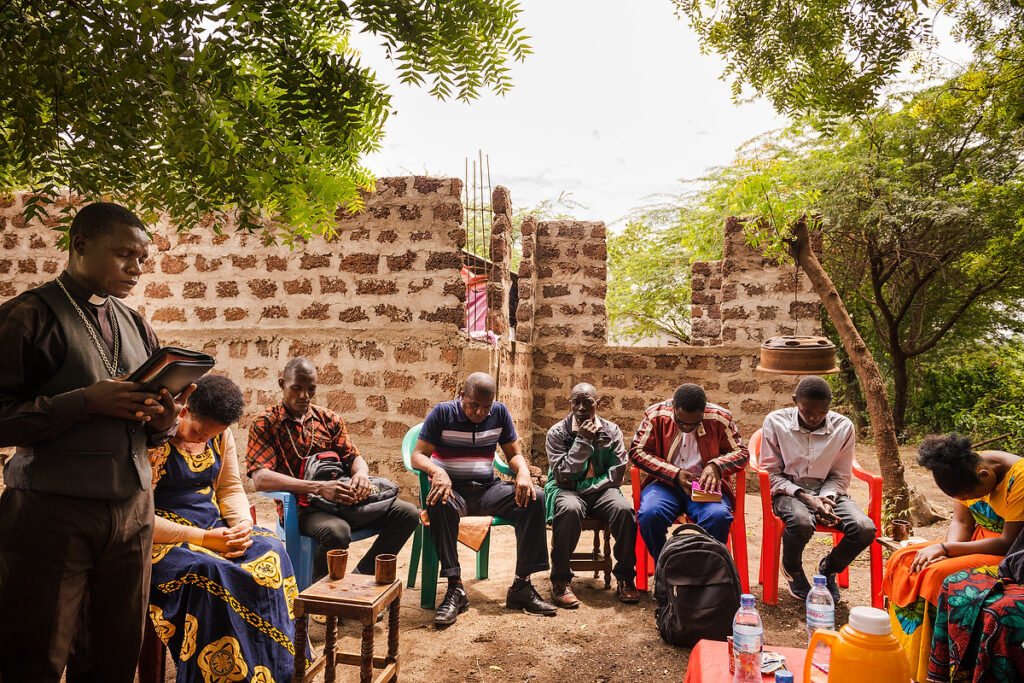
The Rev. Godson Justine Mlay, pastor of Kahe Lutheran Church, prays with guests.
LCMS missionaries are working with the LCEA around Moshi to encourage this church to grow in the knowledge of Scripture and to provide education and care.
“My joy is when I see the look on people’s faces when I teach them something about their own bodies that they never knew before,” said LCMS missionary Sarah Kanoy, who serves as the community health nurse and educator for the LCMS East Africa region. “And when that teaching connects them to the church … that’s my true joy.” Kanoy, who is a registered nurse, lives in Moshi and provides medical education to the people in the surrounding areas, at the foot of Mount Kilimanjaro. She also works with the LCMS Mercy Medical Teams (MMTs) that come to East Africa.
Kanoy hopes to start new work in Kahe, including health education lessons with a tie to the Scriptures. Miriam Kimath, who just received her deaconess certification (sponsored by the LCMS), is planning to receive further training to assist Kanoy in her service to the community. Kanoy and Kimath hope to train the women of the Lutheran congregation in Kahe, so that they can teach their neighbors.
“God used Pastor Godson to tell me about the work of God in Jesus Christ. In my life now I am a Christian and I live that life.”
Deaconess Miriam Kimath
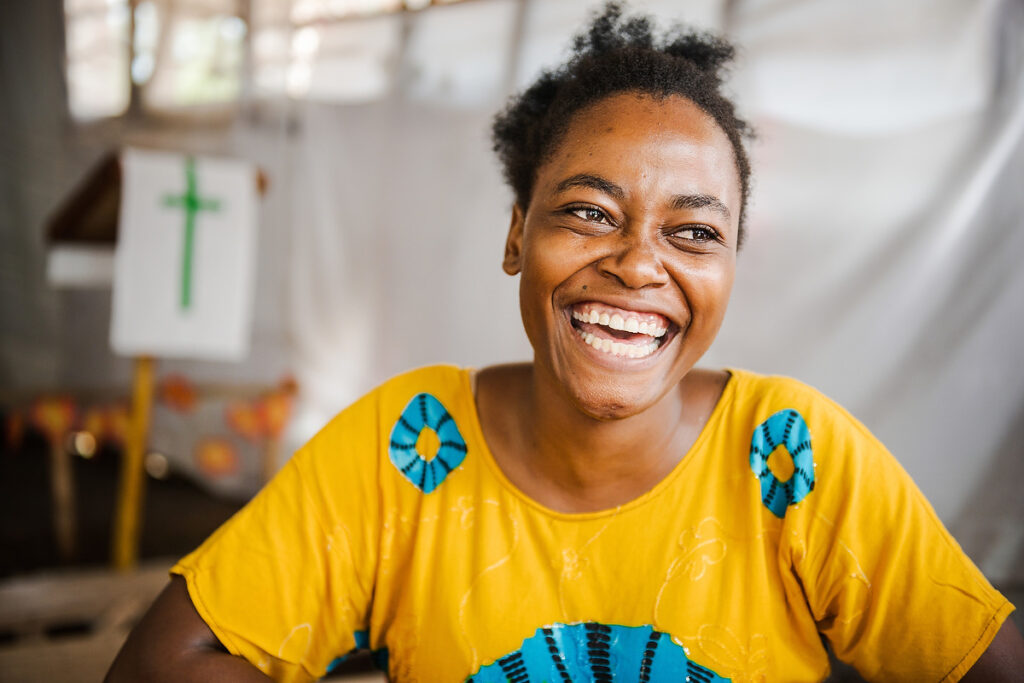
Kimath, who grew up Muslim, learned the Gospel from Mlay at Kahe Lutheran Church. “Pastor Godson talked to me about the Word of Christ. He advised me and encouraged me. I’m so thankful that I became a Christian,” said Kimath. “God used Pastor Godson to tell me about the work of God in Jesus Christ. In my life now I am a Christian and I live that life.”
Kimath now seeks to serve as a deaconess to share the Good News of Jesus with everyone, especially the people who live near her hometown of Kahe.
‘Now We Know the Truth’
“Because we are baptized, we are in Christ,” said the Rev. Dr. Emmanuel Joseph Makala during his sermon on Eph. 5:1–2. “We bear fruit with Christ.” Makala preached and baptized two people at a celebration service for the dedication of Macedonia Middle School outside of Shinyanga on May 12.
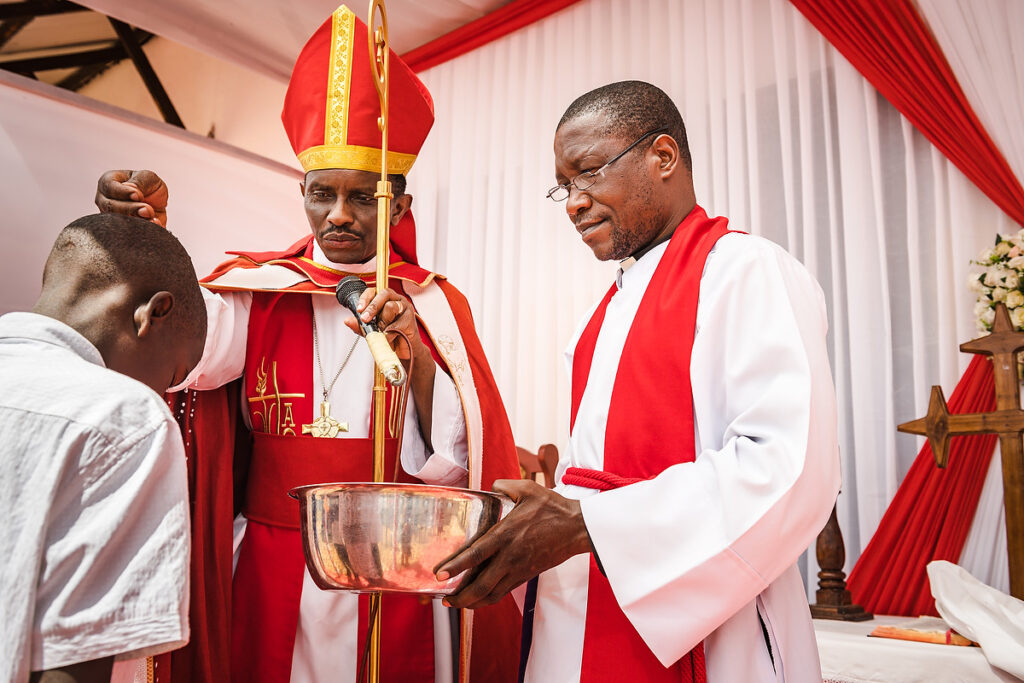
Makala serves as bishop of the Evangelical Lutheran Church in Tanzania—South East of Lake Victoria Diocese (ELCT—SELVD). This area of the ELCT strives to stand on the Scriptures and the truth of the Lutheran Confessions. This means Makala is often the lone voice for a biblical view of doctrinal issues when the ELCT gathers. He desires support for his pastors and within his church body.
Just south of Lake Victoria, men and women of the ELCT—SELVD receive instruction to serve the church at the Bishop Makala Training Center outside Shinyanga, Tanzania. There, women can receive deaconess training and men can learn to be evangelists and pastors. Makala, who attended Concordia Theological Seminary, Fort Wayne, for his doctoral studies, has invited professors from the LCMS to provide instruction at the training center.
This relationship has borne tremendous fruit for the congregations of the ELCT—SELVD. Members of the first cohort graduated in 2015 and were ordained or commissioned. Today, those men and women are serving as pastors and deaconesses in the surrounding communities.
The Rev. Lucas Mwigulu, a member of that 2015 class, serves as pastor of Ebenezer Cathedral in Shinyanga. Mwigulu explained how his time at the center helps him in his daily ministry: “Education at the training center helps me a lot. … [I learned] to differentiate between the Gospel and the Law, the importance of the Lord’s Supper.”
Another member of the 2015 cohort, the Rev. Frank Mdindi, served as a parish pastor after graduation but is now enrolled at Matongo Lutheran Theological Seminary in Kenya, where he is pursuing an accredited academic degree. “If I have a degree, I can talk to the liberals who have degrees. If I don’t have a degree, they wouldn’t listen to me,” he said.
“We have to stand firm in the Scriptures and the Confessions as Lutherans.”
Rev. Frank Mdindi
The constant struggle to proclaim the truth of Scripture is no mere academic exercise for Mdindi. The truth of God’s Word changed his faith during his time at the training center. “At first, I … believed the gospel of glory. Now, I preach the Gospel of the cross,” he said.
“We did not know that we were wrong. But now we know the truth and we teach the truth,” he continued, describing not just his experience, but also that of many of his classmates. “We have to stand firm in the Scriptures and the Confessions as Lutherans.”
“I go neighbor to neighbor,” said the Rev. Mathias Masele, assistant pastor of Macedonia Lutheran Church, Shinyanga, and also a member of the 2015 cohort. “From house to house, they come and focus on Jesus.” During his years as pastor, serving with the Rev. Harold Mkaro, senior pastor at Macedonia, his neighbor-to-neighbor evangelism has resulted in the Baptism of many former Muslims and pagans.
“We first go door to door. Then in the afternoon, we bring dancers in under a tree. And the whole village comes,” said Makala, describing the evangelism process in many villages around Shinyanga. “Then we teach them and preach the Gospel.”
“Muslims are trying to reach those in darkness. If we don’t reach them, the Muslims will,” said the Rev. Dr. Daniel Mono, who attended CTSFW for his Doctor of Ministry degree, and who now serves as pastor of Agape Lutheran Church and School in Kahama. “The little power we have we are using to reach people. And they are coming to Christ. … We hope that by the grace of God we can reach them.”
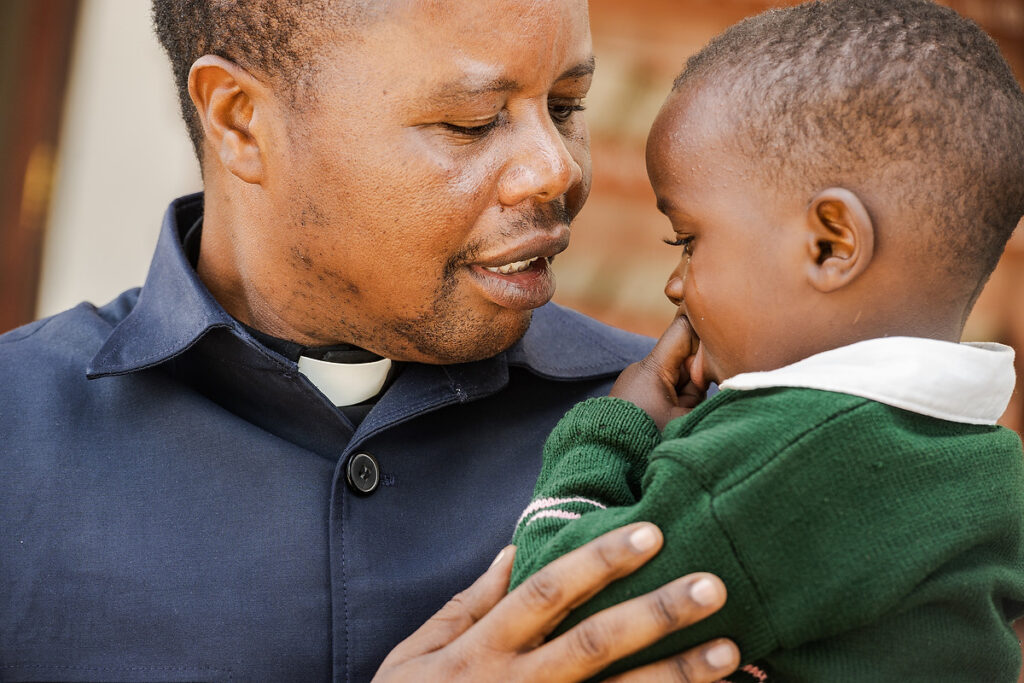
The Rev. Frank Mdindi comforts a young child who was crying. Mdindi has continued his studies at Matongo Lutheran Theological Seminary in Kenya. 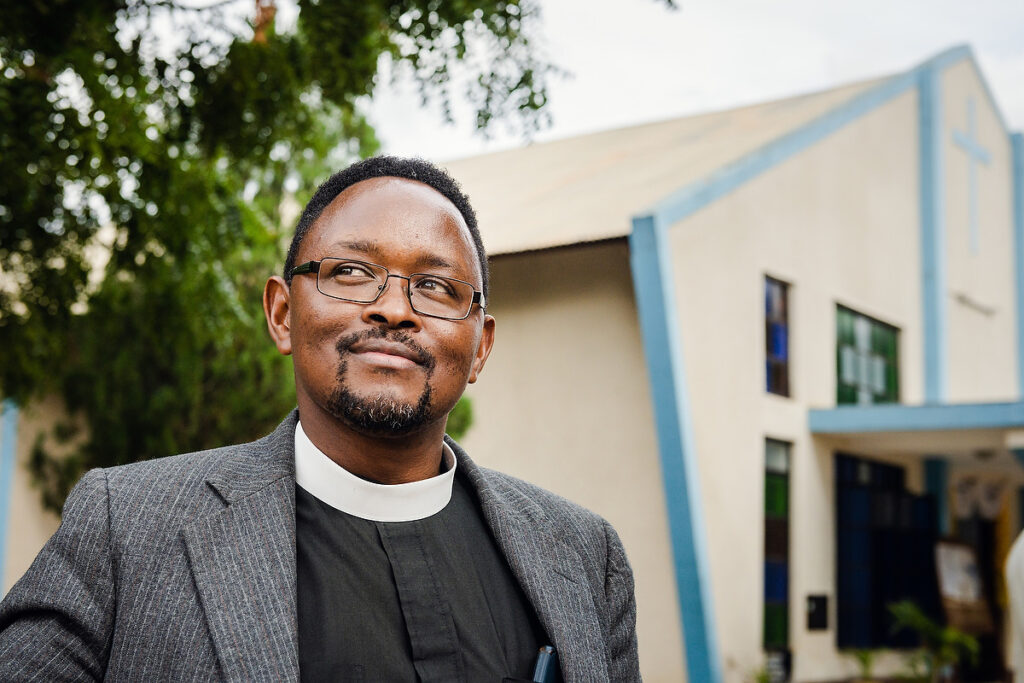
The Rev. Dr. Daniel Mono is pastor of Agape Lutheran Church in Kahama.
Many Muslim families send their children to the church’s school and day-care programs. This allows staff members like Deaconess Mariam Daniel, Mono’s wife, who was a member of the 2015 cohort, to reach out with the Gospel.
“I see people coming to Jesus. I see people leaving the darkness.”
Rev. Dr. Daniel Mono
Mono sees the Gospel bearing fruit. “I see people coming to Jesus. I see people leaving the darkness,” he said.
“When we go to people in darkness, we tell them the Lord will fight for you,” he continued.
“I was just a Christian pastor,” explained the Rev. Yohana Nzelu. “In 2014, I became a Lutheran pastor when I studied at Fort Wayne. … The LCMS has done a lot in my life — in my family and in the church. I have now seen the light. I want to go only to the light.”
Nzelu convinced Mono to study with the LCMS, advice that Mono is thankful for. “As I kept studying, I found it is all right,” noted Mono. Since what they learned from the LCMS is not what is predominantly taught in Tanzania, those who have learned the truth are vigilant to invite professors and others to teach. They also encourage those who have already learned, and they work to find more men to send to the Himo seminary and the Makala training center.
Mercy Alongside Word and Sacrament
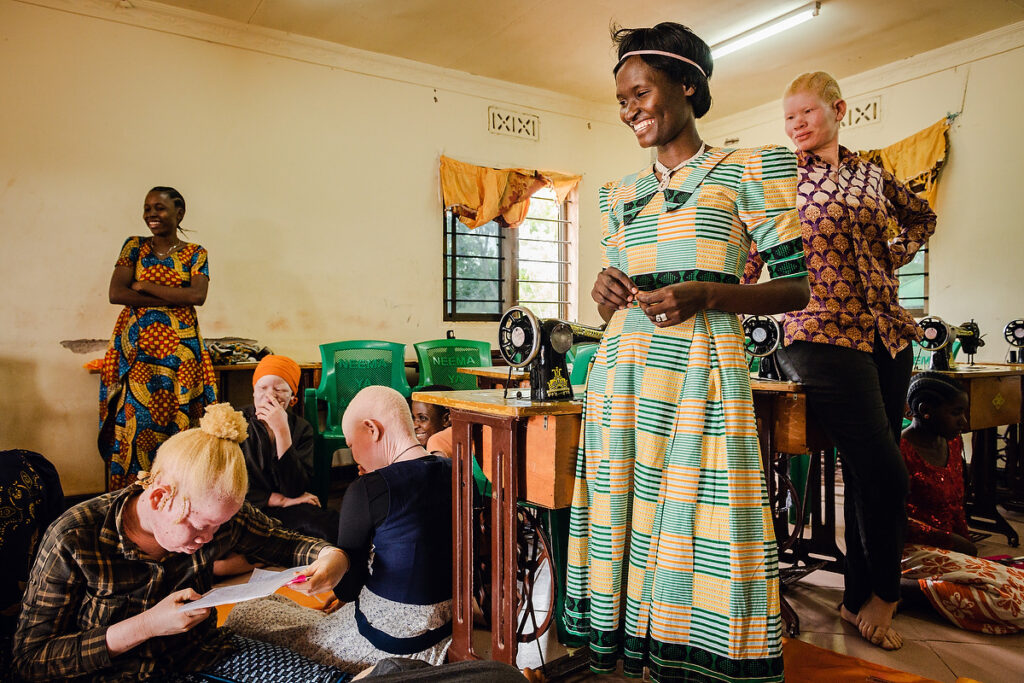
Deaconess Stella from the ELCT—SELVD serves the albino community at the deaconess house in Shinyanga.
In the late 2000s, people with albinism were often cut up and their body parts sold, because witch doctors taught that having these body parts would bring good fortune. This destructive teaching replaced the traditional view that albinism was a curse. The government of Tanzania built centers to house and protect people with albinism. The church supported the residents of these centers as they could. But many were uncertain that the support was getting to those who needed it most.
Now, the ELCT—SELVD runs a house for women with albinism. Currently, the house has 17 residents, who are learning life skills, especially sewing, so that they can earn a living when they return to their villages. Thankfully, people with albinism are no longer killed.
“We teach health, Bible studies and Sunday school,” said Deaconess Stella, who works at the deaconess house. “We want them to grow in their faith.” The residents of the deaconess house attend worship at a local congregation each week and have chapel at the house throughout the week.
Recently, some pastors of the ELCT—SELVD played soccer with the witch doctors from the region. This provided an opportunity for dialogue and for education to the community concerning albinism and the Gospel. According to Nzelu, who serves as headmaster at the Mwadui Lutheran Secondary School, the witch doctors admitted that the pastors represented “the Big God.” In Tanzania, as in America, there are many competing theologies. The church continues to speak truth and to point all to the Word of God in Christ Jesus.
‘Learning to Walk Together’
“When you are bound to the Word of God, you are free,” taught the Rev. Brent Kuhlman of Trinity Lutheran Church in Murdock, Neb., during a pastors’ conference in Mbulu, Tanzania. “Freedom is when your conscience is captive to God’s Word.”
Kuhlman addressed about 70 pastors concerning the teachings of Scripture and the Lutheran Confessions on the Office of the Holy Ministry, the order of creation and the role of vocation.
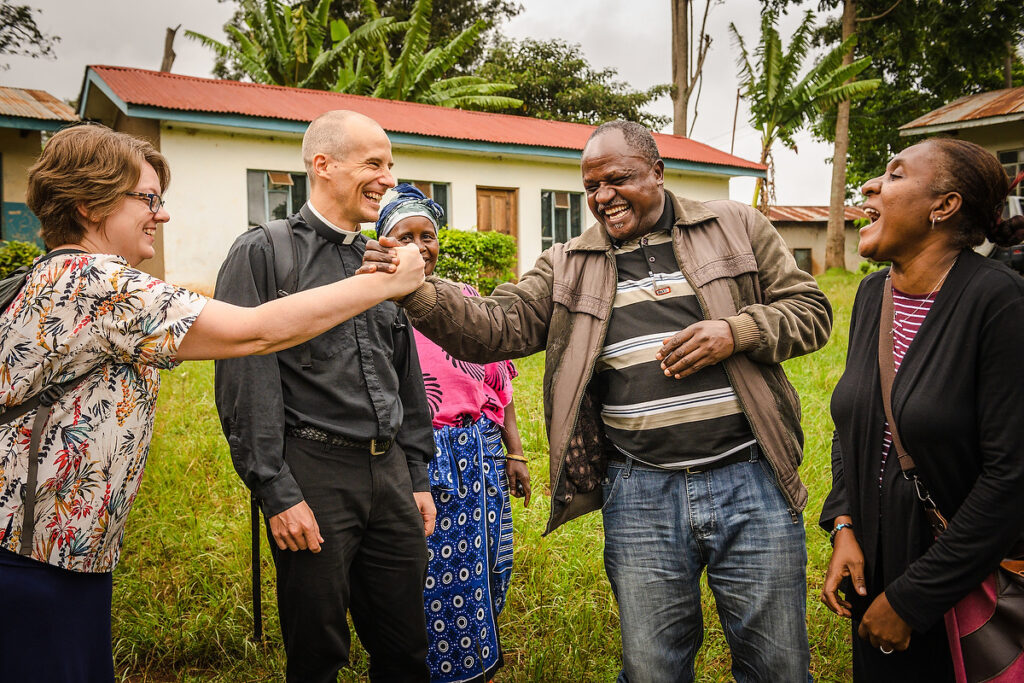
From left, LCMS missionaries Sarah Kanoy, the Rev. Jonathan Clausing and Shara Osiro greet the Rev. Abel Massawe, pastor of Kisaseni Lutheran Church, near Moshi, Tanzania. 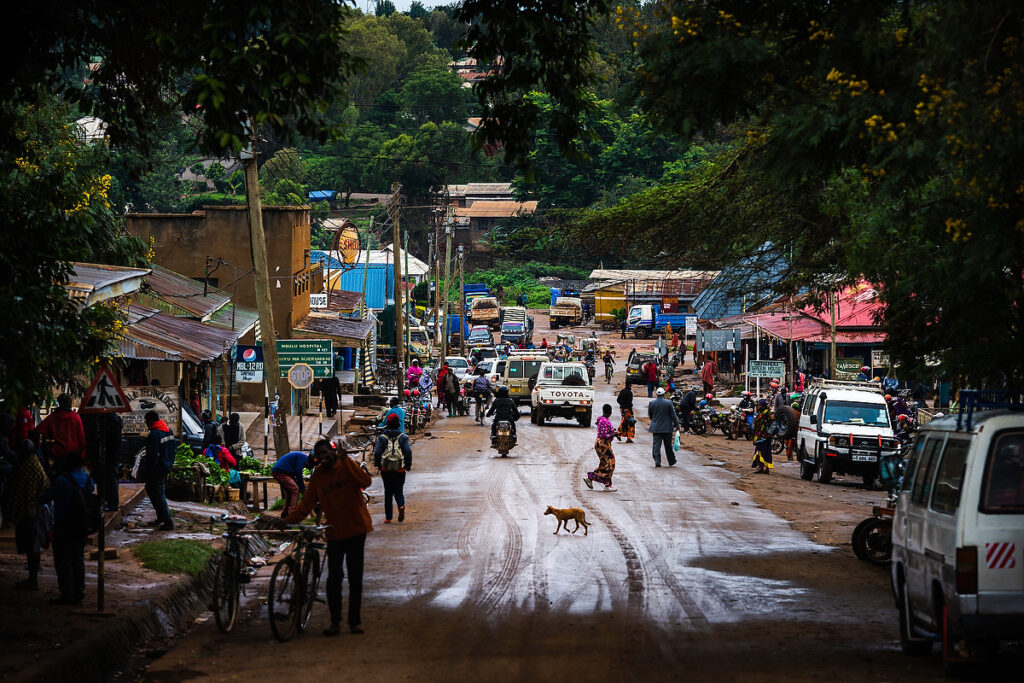
A street in Mbulu, Tanzania. 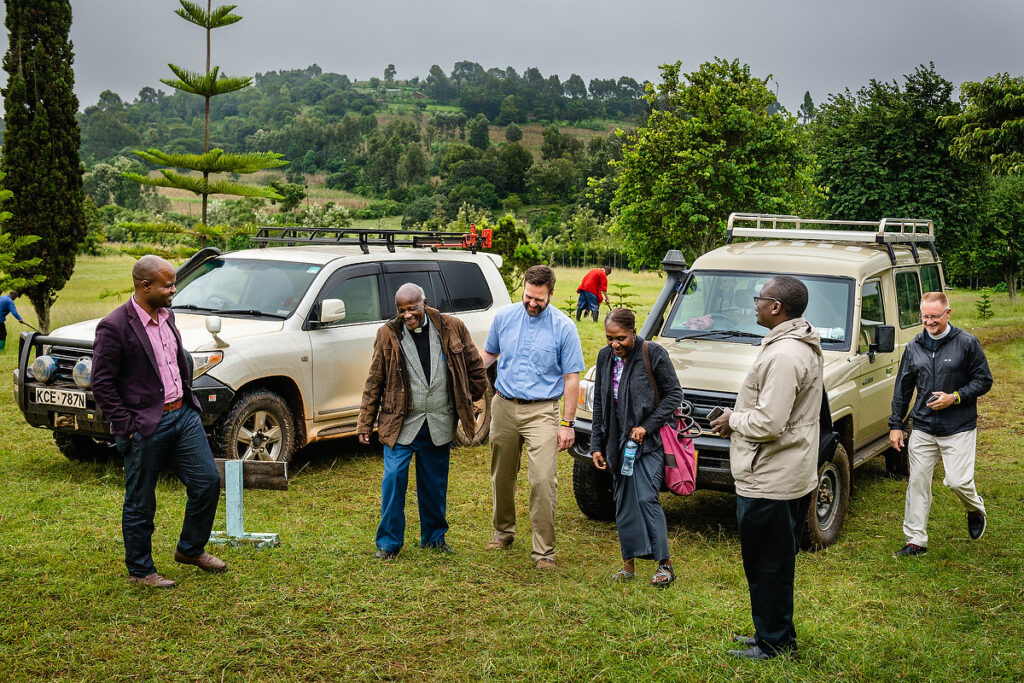
The Rev. Shauen Trump, LCMS area director for Eastern and Southern Africa, and Shara Osiro greet the Rev. Josephat Barabojik, principal of Waama Bible College in Mbulu, Tanzania. 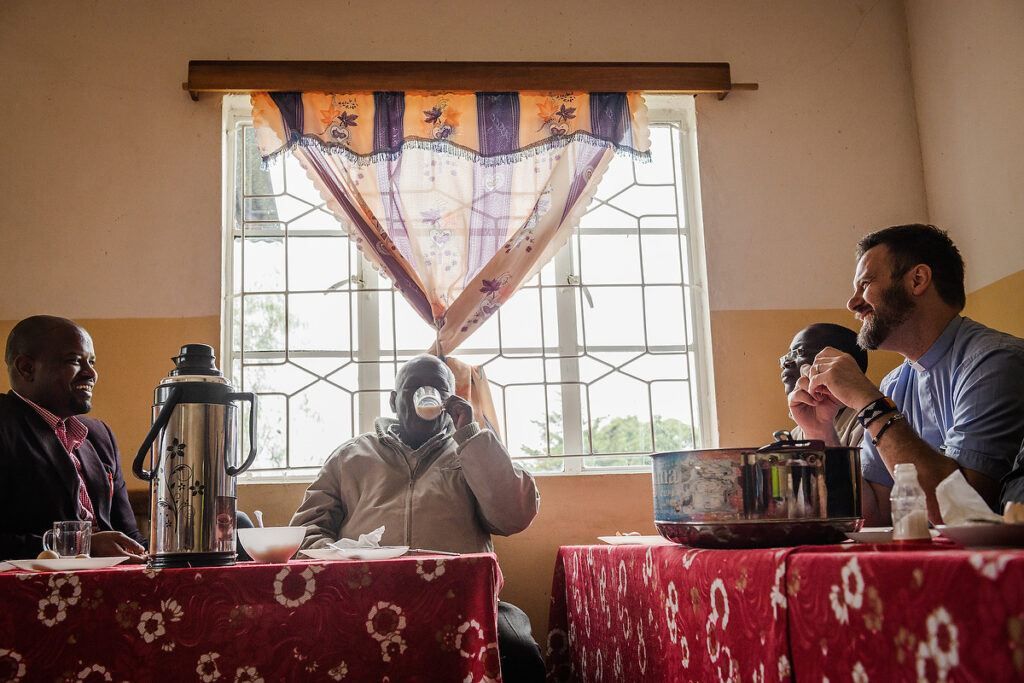
Trump (far right) enjoys a time of fellowship at Waama Bible College. 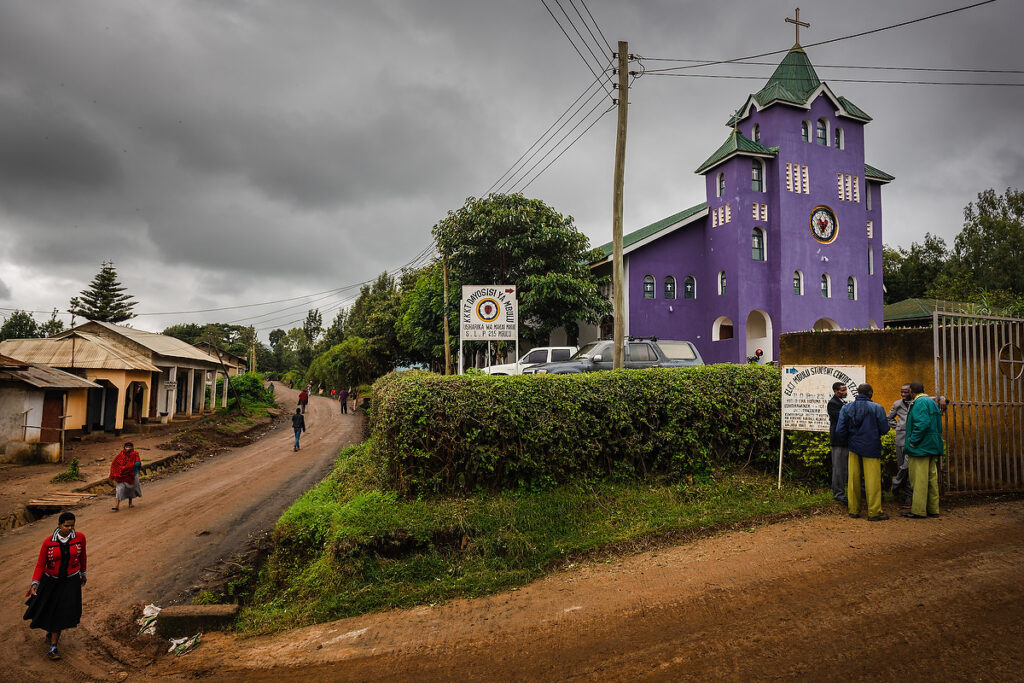
The cathedral at the Evangelical Lutheran Church in Tanzania’s diocese headquarters in Mbulu. 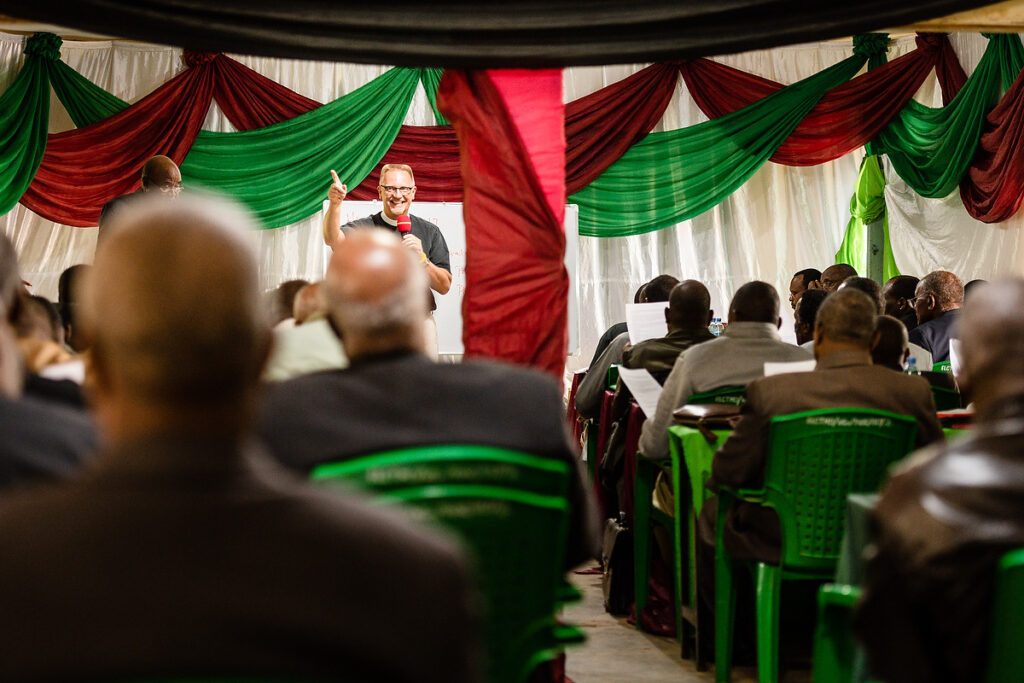
The Rev. Brent Kuhlman, pastor of Trinity Lutheran Church, Murdock, Neb., teaches pastors from the Evangelical Lutheran Church in Tanzania during a conference in Mbulu.
“As part of our getting to know each other, we like to go to theological conferences, because it’s a great way to see what the teaching and practice of the church is. [Bishop Nicolaus Nsanganzelu] invited us to one of their pastor conferences, and they asked if we could bring a presenter,” explained LCMS missionary Rev. Shauen Trump, area director for Eastern and Southern Africa. “In the course of that conference, we found a lot of overlap and a lot of ways we can work together. There was great eagerness for the teaching we bring, and there was great excitement about what we heard from them.
“The conversation … is going to continue to move forward about learning to walk together. The first steps we want to take in that is doctrine and theology — our strengths,” said Trump. “And then on raising up and encouraging them in planting the church and spreading the Gospel.”
Tanzania is one of the top 10 producers of sunflower oilseed in the world, exporting over 350,000 tons of it annually. Like America, this nation is full of friendly people and many Lutherans. And like America, the church is facing challenges to the historic and orthodox faith.
“We have relationships developing in pockets within this church body. We are not keen to cause division or conflict. We are keen to walk together, particularly in celebrating God’s Word. We look for opportunities to speak to pastors about what the Word of God says,” noted Trump. “Pray for our brothers. Support programs the LCMS has — those that provide Bibles and other materials, send professors and supply scholarships. Support roofing projects, Recognized Service Organizations and auxiliaries of Synod that share what we have as Lutherans — like Lutheran Hour Ministries and Lutheran Heritage Foundation who translate and help supply materials in foreign languages.”
“Faith has to be spread from one generation to another,” said Mono. “It is important to teach the next generation the truth.”
“All of us pastors are missionaries,” said Nzelu. “We are only here because of the Gospel.”
Even as the LCMS sends missionaries and professors to Tanzania, we learn from them in their fervent witness and desire for the truth. New friends enjoy learning about each other. And so many in the LCMS are blessed in this growing relationship, all because of God’s love for all in Christ Jesus.
Learn More
- Read more about mission work in Africa: international.lcms.org/africa
- Support St. Peter Lutheran Seminary in Tanzania: lcms.org/givenow/tanzania-seminary
Pray with Us
O Lord, who created light in the darkness, continue to strengthen those who work to proclaim the truth of Your Word in Tanzania. Bless the LCMS missionaries who work to instruct and encourage with Your Word. Bless the church leaders who seek to lead their church bodies to walk in Your truth. Continue to raise up leaders who desire to serve and teach, that all in Tanzania might hear the Good News of Jesus and receive the Sacraments according to Your will. In Jesus’ name. Amen.
Share Jesus with the World
Your generosity today makes possible your Synod’s witness and mercy efforts both at home and abroad.
Are you looking to direct your gifts for work that’s more specific?
Visit the LCMS online ministry and mission catalog to find those opportunities most meaningful to you!
Don’t see what you’re looking for?
Contact LCMS Mission Advancement at 888-930-4438 or mission.advancement@lcms.org to talk about all the options available.

Dr. Kevin Armbrust
Director of Editorial for LCMS Communications.

